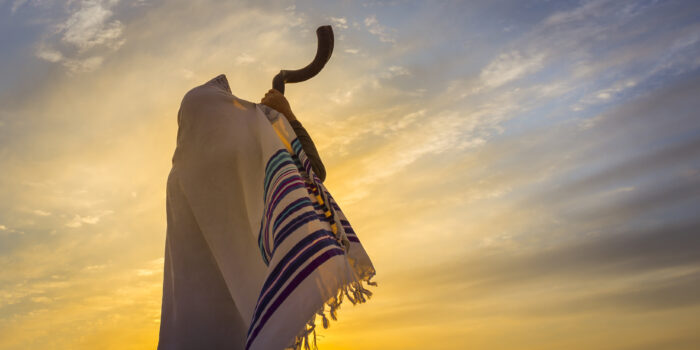
Picture this: you’re on vacation in the Catskill Mountains in Upstate NY and strike up a conversation with a stranger sitting next to you. After exchanging pleasantries, you share the name of the small remote town where you grew up, and the stranger’s face lights up in recognition. They spent a summer visiting that same town, and together you reminisce about the deli with the BEST bagels and lox. In mere minutes, this shared experience has forged a bridge of connection, and whether you recognize it or not, your level of trust towards this individual is markedly higher.
That transformative feeling of familiarity is powerful. And it’s exactly what we aim to achieve through cultural awareness and competence, making it an invaluable asset for mobility professionals. Understanding and appreciating the nuances of diverse cultures not only fosters trust and rapport with clients and assignees from different backgrounds, but also helps us to navigate the intricacies of cross-cultural communication, etiquette, and expectations. Ultimately, cultural competence transforms a global relocation counselor into a bridge-builder, fostering smooth transitions and enriching experiences.
Beyond service delivery, cultural competence helps us build bridges of connection with our team members and those within our community. Taking time to understand others’ cultures – from the food to the celebrations, observances, or values – gives us insight into their journey and helps to form a foundation of trust and respect. A great place to start is asking questions and showing an authentic curiosity for those around you!
As a champion of diversity and inclusiveness and one who identifies as Jewish, I am asked a lot of questions about the high holy days coming up later this month: Rosh Hashanah and Yom Kippur. While Rosh Hashanah is both a joyful and serious occasion, it is associated with creation and, according to the Jewish calendar, the birthday of the world. Yom Kippur, in contrast, is somber, serious, and soul-searching.
Rosh Hashanah is a day of accounting and judgment. This refers to the belief that on Rosh Hashanah, the Book of Life is opened, and on Yom Kippur, the Day of Atonement, our fates are sealed for the coming year. Jewish tradition says that through repentance, we can influence our own fate and hope that we will be inscribed in the Book of Life for another year. This entire month is a “preparatory period” of introspection and reflection on our mistakes in the past year and how we can improve our behavior in the coming year.
Traditions Worldwide
Fascinating to me, as one who identifies as Jewish, are the universal customs that are observed as well as the myriad ways in which the holidays are recognized so disparately around the world. So, whether you’re in America or Yemen, here are some symbols you may recognize and what they mean:
The Shofar
A shofar is a ram’s horn that is blown at Rosh Hashanah and Yom Kippur services, as well as every morning of Elul, the 7th month of the Jewish calendar, which is the month leading up to these high holy days.
There are many reasons for blowing the shofar, but here are the three most widely known:
- “The shofar is sounded to stir our consciences, inducing us to confront our past errors and return to God, who is always ready to welcome the penitent.”
- “The shofar, since it is a ram’s horn, is reminiscent of the ram offered as a sacrifice by Abraham in place of his son Isaac.” Christians, Muslims, and Jews are all familiar with the story of the Binding of Isaac.
- “The shofar urges us to feel humble before God’s majesty and might, which are manifested by all things, and which constantly surround our lives.”
Tashlich
Tashlich is a ceremony in which Jews throw pieces of bread into a body of water to symbolize casting away their sins. Jews often ask forgiveness directly of people they may have wronged during the year in these 10 days between Rosh Hashanah. Forgiveness can only come if we approach the person we have wronged.
Pickling Fallen Olives
In Djerba, an island off the coast of Tunisia, which still has an active Jewish community, it is customary for children to comb the olive orchards in the days before Rosh Hashanah. They collect as many fallen olives as they can, which are then pickled in salt. On the morning before Rosh Hashanah, they carry the olives through the streets, asking that our merits multiply like olive saplings.
Western Europe: Paying Debts
It is recorded in the Book of Customs of Worms, Germany, one of the oldest and most preeminent Jewish settlements, that one should pay up all debt before Rosh Hashanah so that one may enter into judgment unencumbered and clean.
Eastern Europe: Purchasing a New Knife
Before Rosh Hashanah, it is customary among the most devout Jewish sects to purchase a new knife (and sharpen it) for every member of the household, expressing the wish for a year full of bounty and plenty.
Morocco: Enjoying Seven Cooked Vegetables
On Rosh Hashanah eve, many Moroccan Jews eat seven cooked vegetables. The menu selection varies, but the number seven is consistent. Many of the dishes overlap with the traditional lists of symbolic foods eaten for a good year. It is said that the number seven recalls that Rosh Hashanah ushers in the seventh month of the Jewish calendar and symbolizes the Midrashic tradition that “all sevenths are beloved.”
Here in the USA, my family combines many traditions, but most important is the quiet contemplation of our missteps and the opportunity to ask and receive forgiveness. Personally, I look forward to the introspective nature of this season, and just as you might set a new year’s resolution in January, this time allows us another opportunity to start fresh.
“G’mar Chatimah Tovah” — may you be inscribed in the Book of Life.